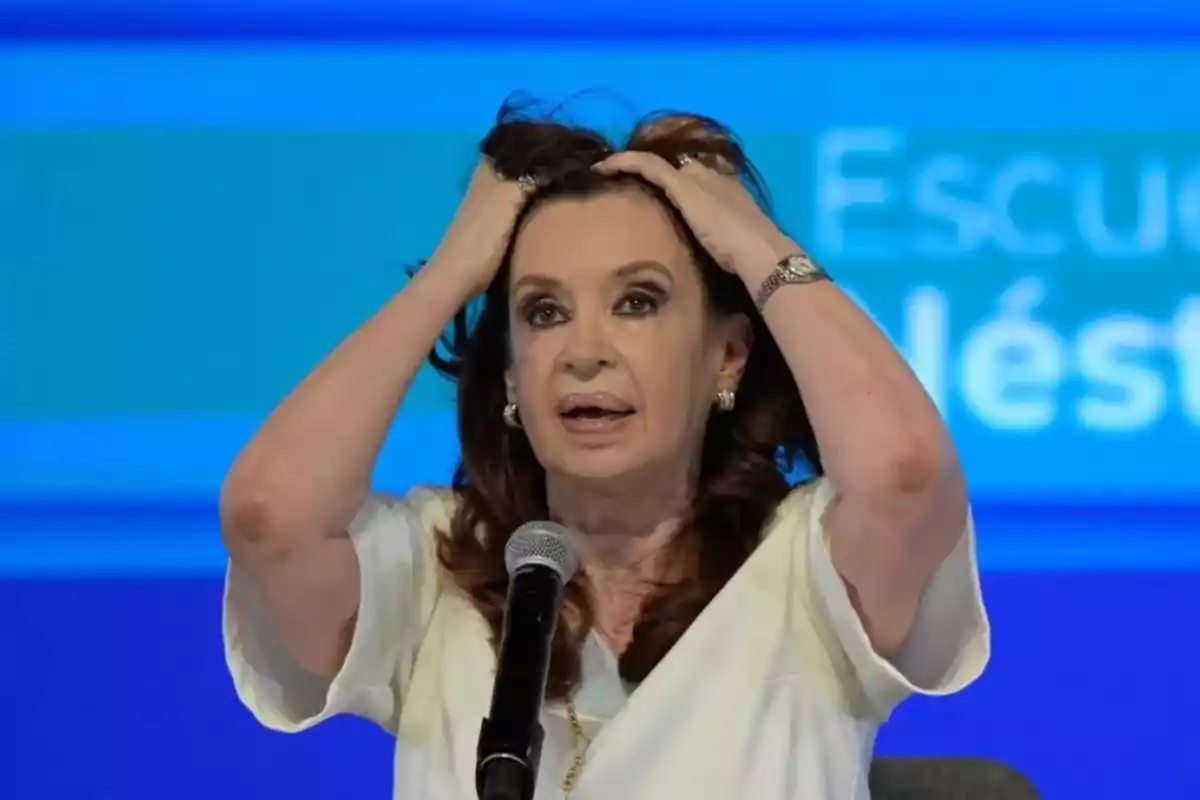
The Supreme Court of Justice of the Nation began addressing the Vialidad Case
The prosecutor's proposal, Mario Villar: extend the sentence against the former head of state to 12 years
The Supreme Court of Justice of the Nation took a key step this Tuesday in the Vialidad case file, where Cristina Fernández de Kirchner was sentenced to six years in prison and a lifetime disqualification from holding public office. Through the criminal secretariat, the highest court decided to forward the appeal of the prosecutor before the Chamber of Cassation, Mario Villar, to the interim Attorney General, Eduardo Casal, for an opinion.
Although the Attorney General's opinion is not binding, his intervention marks the first formal move by the Court in a case of high institutional impact, where serious irregularities in the awarding of public works during the Kirchner governments were judged.
Casal, in his capacity as head of the prosecutors and prosecutor before the Court, must rule on the request of Villar, who requested that the sentence against the former president be extended to 12 years in prison, incorporating the crime of illicit association, in addition to fraudulent administration. If this position is supported, the way would be clear for the Court to move forward toward a final ruling, which would jeopardize Fernández's political ambitions.
[IMAGE]{969132}[/IMAGE]
Currently, the file in the hands of the Court contains 17 pending appeals. Among them is the presentation of Cristina Kirchner's defense, led by her lawyer Carlos Alberto Beraldi, which attempts to overturn the sentence ratified by the Federal Oral Court No. 2 and Chamber IV of the Chamber of Cassation.
This appeal represents the former president's last judicial attempt to prevent the sentence from becoming final and activating not only the prison sentence—which could be served under house arrest given her age, over 70 years—but also the lifetime disqualification from holding public office, which would be applied immediately.
Prosecutor Villar's request, dated March 31, is forceful. In his 10-page document, he argues that "it was fully proven" that Cristina Kirchner was part of a criminal organization aimed at defrauding the State. This accusation refers to the initial request of the oral trial, in which prosecutors Diego Luciani and Sergio Mola had requested 12 years in prison for both crimes.
However, Federal Oral Court 2 sentenced the former president by majority to six years in prison only for fraudulent administration, dismissing the figure of illicit association. The Chamber of Cassation confirmed the ruling, which led Villar to appeal directly to the Court through an extraordinary appeal, which was rejected. From there, it resulted in an appeal that the Court has now begun to address.
In addition to Cristina Kirchner, Villar also appealed the acquittals that benefited the former Minister of Planning, Julio De Vido, the former Undersecretary of Public Works, Abel Fatala, and the former Santa Cruz Road official, Héctor Garro. In his appeal, he denounced that Cassation conducted "a fragmented analysis of the evidence" and excluded "definitively the charge of illicit association for some of the defendants and unfaithful administration for others" with "dogmatic" arguments.
[IMAGE]{969141}[/IMAGE]
Appeals have also been filed by other defendants in the case, such as the former Secretary of Public Works, José López, businessman Lázaro Báez, the former head of Road Nelson Periotti, and other former provincial officials like Raúl Pavesi, Juan Carlos Villafañe, and Mauricio Collareda.
The Vialidad case has already accumulated 24 solved appeals since 2017. At that time, the rulings were signed by the five ministers of the court: Ricardo Lorenzetti, Juan Carlos Maqueda, Horacio Rosatti, Carlos Rosenkrantz, and Elena Highton de Nolasco. The latest, solved in June 2022, were signed by Maqueda, Rosatti, Rosenkrantz, and Lorenzetti.
More posts: